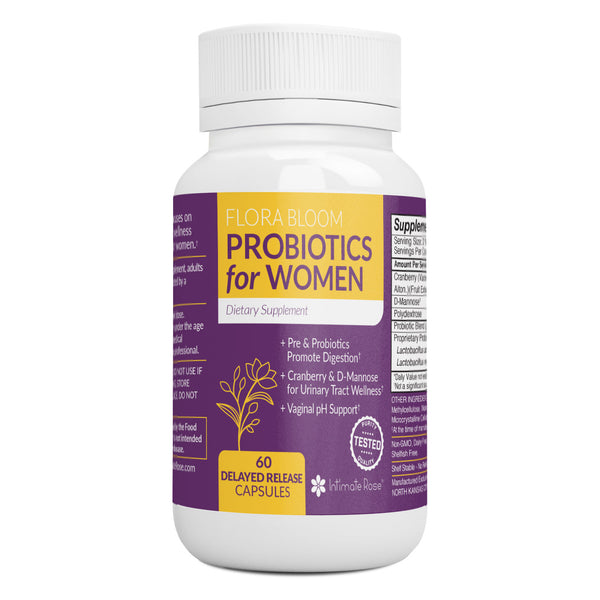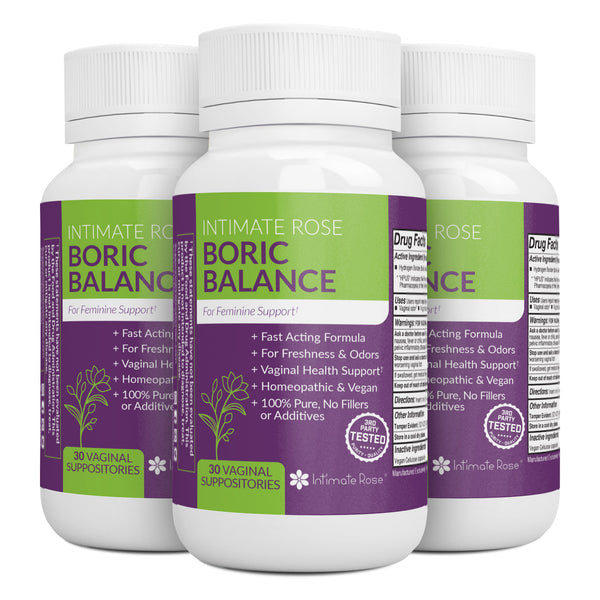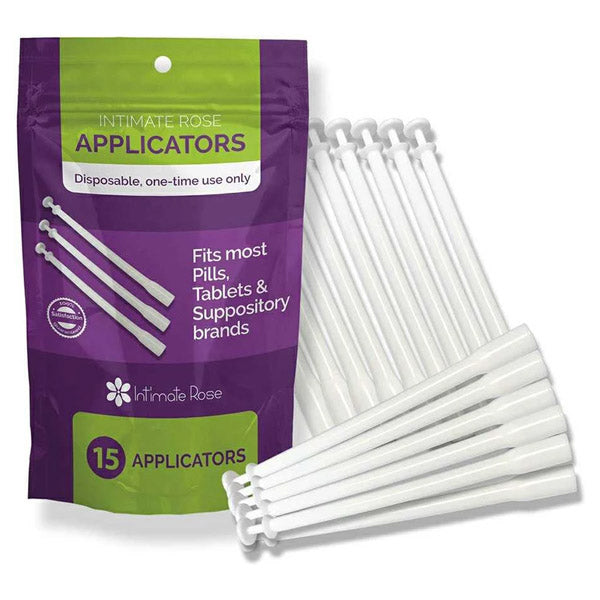Remedies | Causes | Recommended Products
Vaginal odor can be unpleasant to talk about for any woman, and even more unpleasant to experience. Here is some information on what causes it, and some natural ways to treat it and get rid of feminine odor at home.
Natural Ways to Treat Feminine Odor
There are some simple steps you can take to reduce vaginal odor. If your odor is accompanied by symptoms of Bacterial Vaginosis, trichomoniasis or other vaginal infections (vaginitis), you will need to see your doctor or healthcare provider for an appropriate diagnosis and treatment plan.
The following treatment tips can help reduce common causes of vaginal odor. They are also beneficial in preventing and treating BV.
Home Remedies for Vaginal Odor

1. Take Probiotics
All of our bodies contain bacteria. While some cause disease or illness, others are necessary to maintain good health and keep the body in a healthy balance. When this balance is thrown off by stress, illness, or a course of antibiotics, health problems can follow and probiotics may be helpful.
Probiotics are the beneficial kind of bacteria, similar to what is found in the body. They can be found in a variety of fermented foods, such as yogurt, sauerkraut, kefir, kombucha, kimchi, and tempeh.
They are also available as a supplement, most often in an oral form. These supplements are safe and have many benefits for digestive and vaginal health. Most research on the use of probiotics for vaginal odor studies their effect on odor that is specifically due to BV.
Preliminary research suggests that probiotics are helpful in preventing BV and in restoring vaginal pH and healthy vaginal flora.
2. Maintain a Healthy Diet
A healthy diet is important for preventing vaginal odor because it supports the overall balance and health of the body, including the vaginal environment. Additionally, certain types of food can influence the pH balance and bacterial flora of the vagina. For example, probiotic-rich foods like yogurt can promote the growth of healthy bacteria, while excessive sugary or processed foods might contribute to imbalances that lead to odor. Hydration, particularly through water intake, is also crucial as it helps to flush out toxins and maintain healthy bodily functions.
3. Use Tampons or a Menstrual cup
Menstrual pads often hold more of an odor than a tampon or a menstrual cup, and can also make perineal hygiene more of a challenge during menstruation. Just make sure to change them frequently.
4. Shower or Bathe Regularly
Proper hygiene, such as regular washing with mild soap and water, can prevent the buildup of sweat, dead skin, bacteria, and discharge, which are common causes of unpleasant odors. It is important not to take hygiene too far though, since using scented soaps, menstrual pads, and tampons can interfere with the healthy chemical balance in your vagina.
Douching (rinsing your vagina with water or other fluids) or using heavily scented soap should be avoided, as these practices can alter the pH of the vagina. Washing with warm water is the best way to wash your vagina and vulva. In general, it's best to shower versus take a bath if the odor persists.
5. Use a Condom During Sex
Semen can irritate the vagina and change vaginal pH, which can make it more susceptible to BV. Using a condom can help maintain an optimal pH and reduce vaginal odors. Urinate after sex to flush out the area, instead of douching.
6. Wear Breathable Cotton Underwear
It is important to wear underwear made from natural material such as cotton, which is absorbent and breathable. Avoid tight fitting clothes like tights or pantyhose if vaginal odor is a problem for you. Change underwear after exercising to keep things dry and avoid irritation.
It is also a good idea to go without underwear at night.
What Causes Vaginal Odor?
Vaginal odor can be caused by a variety of factors, ranging from infections to lifestyle choices. Most of the time, vaginal odor does not indicate a serious condition that needs to be treated and should not be cause for concern.
Learn about 9 common causes:
- Bacterial Vaginosis: An imbalance of the natural bacteria in the vagina.
- Yeast Infections: Overgrowth of yeast leading to a distinctive odor.
- Poor Hygiene: Inadequate cleaning can lead to accumulation of sweat and bacteria.
- Overwashing or Using Harsh Soaps: Disrupts the natural pH and bacterial balance.
- Sexually Transmitted Infections (STIs): Some STIs can cause unusual vaginal odor.
- Forgotten Tampon: A retained tampon can cause a foul, decaying smell.
- Hormonal Changes: Fluctuations during menstruation, menopause, or pregnancy.
- Excessive Sweating: Can contribute to a musky vaginal odor.
- Diet: Certain foods and drinks can affect the natural scent of the vagina
The Ultimate Vaginal Bundle

The vagina is naturally mildly acidic, which helps keep bacteria and yeast growth in check. Changes in vaginal pH can upset this balance and lead to odor-causing infection.
Trichomoniasis, a sexually transmitted disease caused by a parasite, can also cause a foul-smelling vaginal fluid and burning or itching.
If vaginal odor is a persistent problem, try making some of these simple changes, and ask your doctor about whether a probiotic supplement or boric acid is the right choice for you.
What is a 'bad' Vaginal Smell?
A 'bad' vaginal smell can manifest as a fishy, musty, or rotten odor, which is often a sign of an infection or imbalance in the vaginal flora. These smells can vary from mild to strong and are distinct from the normal, subtle scent of the vagina.
When Should I See a Doctor?
A woman should see a doctor about feminine odor if the odor is accompanied by unusual secretions, changes in color or consistency of discharge, pain during urination, or any form of genital discomfort or itching. These symptoms can indicate an infection or other medical condition that requires professional diagnosis and treatment.
Related Articles

Things Off Down There?













